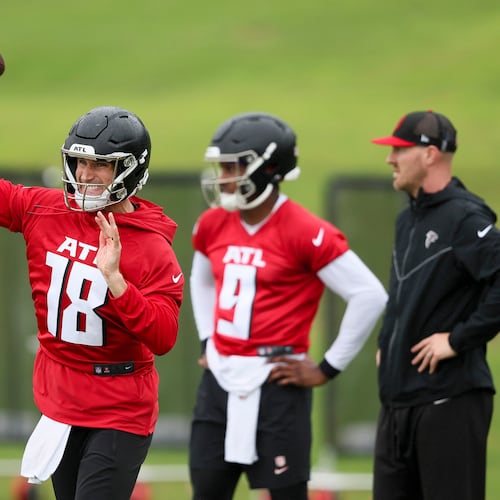Peyton Manning will start at quarterback for the Broncos against the Steelers in an AFC divisional playoff game this weekend. There’s lots of discussion about how effective Manning can be considering his age and injuries, but hardly any talk about the allegation that a clinic shipped human growth hormone to his home.
Manning denied that he’s ever used HGH, but hasn’t disputed a central allegation of the Al Jazeera report from two weeks ago: that HGH addressed to his wife was shipped to his house in 2011, when he was recovering from neck surgery. There’s more than enough meat on that bone to get people chewing, but first they would have to care, and it’s become increasingly clear none of NFL’s scandals do anything to hurt its popularity.
With Manning’s case, it makes sense that the public is not too worked up about the possibility that he used HGH. For one thing, they may distrust Al Jazeera’s report and believe his denials. Also, rational people have to believe pretty much all football players are on something or else imagine that there is a large population of genetically freakish athletes with remarkable abilities to recover from injuries.
But PEDs aren’t the only controversial issue people are willing to overlook while enthusiastically embracing the NFL. If people don’t care about the violence of the NFL’s players spilling into real life, its greedy owners grabbing for corporate welfare, its tacit condoning of cheating and its many other issues, then why would they care about HGH?
I’ve long hoped the public eventually would reach its breaking point with the NFL. I figured maybe it would happen once people realized the NFL is a drain on public coffers, a government-supported bread-and-circus show. I thought fans would see that the NFL’s players are not heroes, but rather flawed humans with extraordinary athletic talent.
Working stiffs tend not to have much sympathy for millionaires who are paid to play a game (even as they give a pass to billionaires profiting from that labor). But surely the sight of ex-players suffering from brain injuries would turn off even those fans who see players as highly compensated pieces of meat.
Surely it did not. But if the concussion issue didn’t give fans pause, then the tipping point might be the Patriots’ cheating scandal and reported cover-up by the league. Or maybe it would be the weekly incompetence of game officials.
Consumers who care nothing about the negative social implications of the NFL as an institution would start tuning out once they saw that the league is more about entertainment than fair competition, especially if it’s their team that’s getting jobbed. But those things don’t matter, either.
Americans love the league more than ever, no matter how often or how egregiously the NFL shows it doesn’t deserve the affection. (I say this even as I acknowledge that I make my living in part because people can’t quit the NFL.)
The NFL can do whatever it wants and people will keep watching as long as it entertains. That’s why now I figure the only hope for its decline is that the games no longer are interesting, but I’m losing faith in that after last weekend’s wild-card games.
The Seahawks and Steelers didn’t play well, but won because their opponents blundered. The AFC South champion Texans got beat down by the mediocre Chiefs. The Redskins won the NFC East and then couldn’t stop the previously floundering Packers.
There were few entertaining moments yet TV ratings increased for three of the four games. People love the NFL when it is corrosive to our culture, and it doesn’t even matter if the games are bad.
About the Author
Keep Reading
The Latest
Featured

